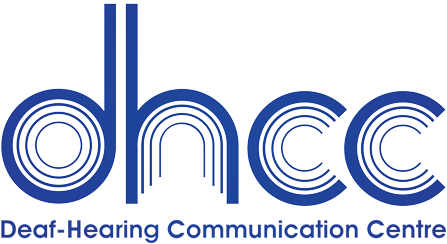DHCC Mission
Our mission is to advocate for and promote equal communication access, educational service, cultural awareness and economic development to the Deaf, DeafBlind, and hard of hearing populations in the greater Philadelphia region and surrounding areas.
Pennsylvania: Delaware, Bucks, Chester, Montgomery, Philadelphia, Lehigh and Berks Counties
New Jersey: Camden, Gloucester, Burlington, Mercer and Salem Counties
Delaware: New Castle County
We provide American Sign Language interpretation for over 26,000 events equaling over 86,000 hours of service to the Deaf, hard of hearing and DeafBlind communities.
We offer a variety of programs and services to Deaf and hard of hearing individuals, their families and the surrounding communities.
Community Programs With Impact
We provide interpreters to facilitate a successful interaction with medical, educational, legal, and mental health professionals as well as overnight emergencies. Seven days a week, twenty-four hours a day, DHCC meets the needs of our consumers, sometimes when they feel most alone.
DHCC is familiar with the communication needs of the Deaf consumer and uses its processes to determine which interpreter has the skill to work most effectively with a particular Deaf person. This cannot be overstated. Not all interpretation is alike. The interpreters we would assign for a courtroom case would be a completely different interpreter if we were looking for a preschool interpreter.
DHCC fills assignments with a qualified interpreter at all of the either onsite or remote (video remote interpreting) assignments. DHCC has an excellent reputation in the community and has extensive experience providing interpreters for all types of situations. Our sign language interpreters are thoroughly screened prior to working with our customers and the over 180 American Sign Language interpreters we place are among the most respected and qualified in the Philadelphia area.
DHCC has the first and longest serving on-call emergency interpreter service in the Delaware Valley for medical and/or police emergencies during non-business hours. One coordinator and 4 interpreters are on call each night, weekend or holiday for a quick response.
The Community Interpreting Program (CIP) is meant to cover one-time events not covered under the Americans with Disabilities Act (ADA) such as weddings, funerals, baby showers, etc. It is not intended for on-going, monthly events or business-related meetings.
DHCC offers a fun, relaxed learning environment and community-level, non-credit beginner American Sign Language (ASL) instruction via community classes, on-site corporate classes and private one-on-one sessions. Our teachers, who are native ASL users, promote a relaxed learning environment with both structured and spontaneous dialogue. This gives students the opportunity to develop appropriate conversational strategies that are unique to Deaf Culture.
DHCC offers on-site Training & Workshops that cover a variety of sensitivity topics and continued education units (CEUs) related to open and equal communication among Deaf, hard of hearing and hearing individuals. The standard presentation is 2 hours; however, DHCC can adapt to meet customers’ needs. Our goal is to educate so that businesses can provide better services to their Deaf and hard of hearing customers, patients, and coworkers. In addition, our training is frequently used to meet a company’s continuing education requirements for their employees.
Knowledgeable DHCC presenters with first-hand experience will cover topics such as:
Laws relevant to communication access for individuals with a hearing loss
Common challenges, impacts, and characteristics of hearing loss
Linguistic and cultural diversity among Deaf, hard of hearing, and hearing populations, strategies for effective communication including how and when to request access services such as a sign language interpreter, real-time captioning services (CART) and/or other devices, and how to use them effectively.
DHCC’s mission is to promote communication accessibility, equality and cultural awareness to the Deaf, hard of hearing and hearing communities. Advocacy is an important part of achieving this mission. The staff at DHCC advocate in a variety of ways, working towards equal communication access for Deaf and hard of hearing individuals. The Americans with Disabilities Act of 1990 (ADA) is the legislation referred to most to support the provision of communication access.
There are two types of advocacy – Personal Advocacy and Systemic Advocacy.
Personal Advocacy
Personal advocacy assists an individual to obtain services that are his/her legal right, such as sign language interpreters. DHCC staff provide personal advocacy on behalf of a Deaf or hard of hearing individual in situations involving communication inequality.
If any place of public accommodation (such as a doctor’s office, or an educational institution), employer or any entity that receives federal funding rejects your request for a sign language interpreter, a DHCC staff member can call the business to advocate for your needs. DHCC staff members will provide specific information regarding the service provider’s responsibilities according to the ADA or other relevant legislation. DHCC also provides written material and directs the service provider to appropriate internet resources for additional information when necessary.
Systemic Advocacy
Systemic advocacy changes systems, services, and legislation in the cause of justice and human rights. For Deaf and hard of hearing consumers, the goal is usually to improve access to services. Systemic advocacy activities include participation as a member of a coalition of many organizations working for a specific cause, working in partnership with Deaf and hard of hearing consumer groups, responding to new legislation, and other related activities.
DHCC may be a standalone 501c3 nonprofit organization, but we exist in a community of organizations that serve the Deaf, hard of hearing and DeafBlind communities. Accordingly, DHCC promotes and supports the activities of many other organizations. The typical weekly e-newsletter contains twenty-five or more different organization and event listings to serve our community.
DHCC maintains a “Prepare for Emergencies” section on our web site to communicate critical and timely information to our clients. From severe weather to public health and even evacuation preparation, vitally needed information is available.
An astonishing 98% of the cost of our programs is covered by earned income. However, earlier this year, the Board of Directors approved a strategic shift for the organization to expand its work and look at how we can better meet the needs of young Deaf, hard of hearing, and DeafBlind adults. We’re also going back to our roots as we work to provide more robust services for parents of Deaf children.
As a result, DHCC has implemented a comprehensive fund-raising program designed to communicate the value of DHCC services to individual, foundation, corporate and government sources of philanthropy. We are proud to have a Platinum Rating for transparency on Guidestar.org, which is an information service specializing in reporting on U.S. nonprofit companies. In 2016, its database provided information on 2.5 million organizations.
Ways To Support DHCC
There are many ways to support DHCC programs and services.
Donate Online
Make a single or recurring tax-deductible donation online using our secure donation form. Click here to Donate.
Corporate Giving
Learn how a company can do well by doing good. Contact Ken Wesler at kwesler@dhcc.org or 484-471-3001.

